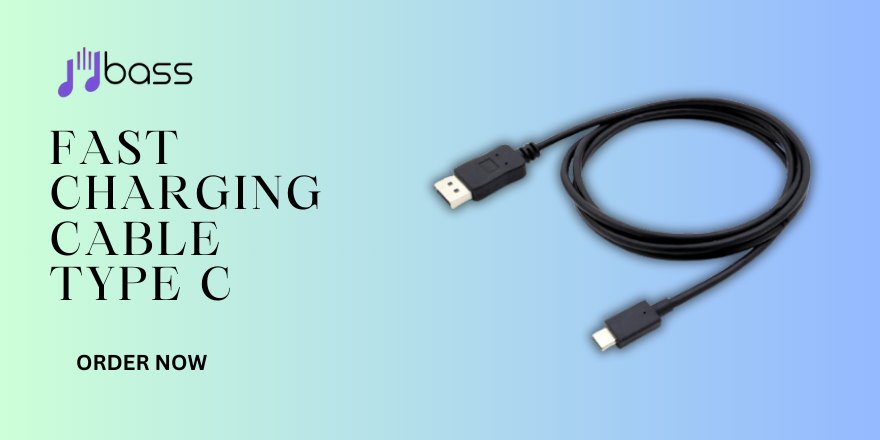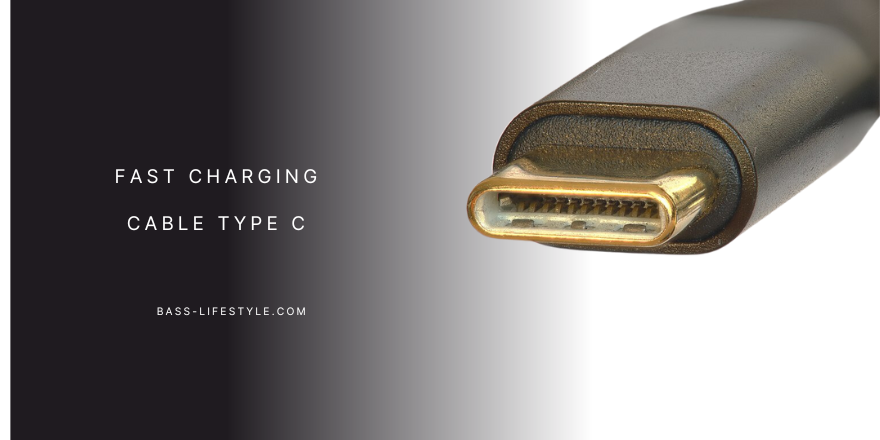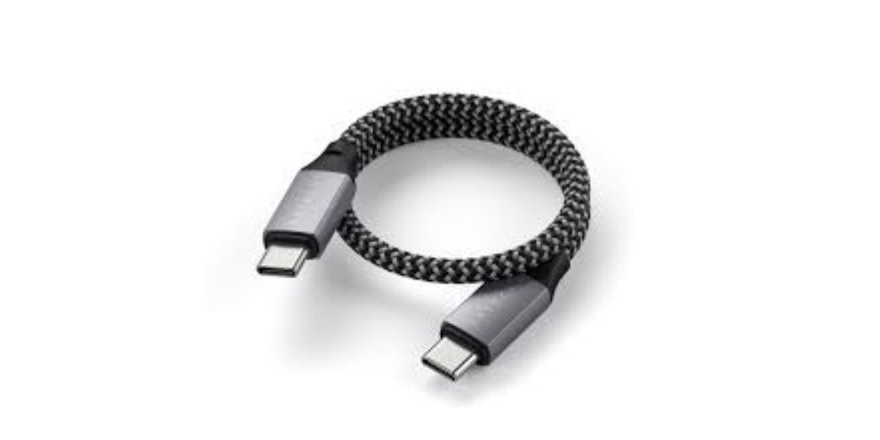Fast Charging Cable Type C has become a necessity, ensuring that our smartphones, tablets, and other gadgets are always ready for action. As we delve into the world of fast charging, the spotlight is on Type C cables and their revolutionary capabilities.
Evolution of Fast Charging Cable Type C
The evolution of Fast Charging Cable Type C stands as a testament to the relentless progress in technology, transforming the way we power our devices. From the early days of cumbersome and slow chargers to the sleek, high-speed solutions we have today, the journey has been remarkable. Initially, charging cables were largely proprietary, designed to suit specific device models, causing inconvenience and limiting compatibility.

The introduction of standard USB cables marked a significant shift, offering a more universal approach. However, as our devices became more power-hungry and versatile, the limitations of traditional cables became evident. The breakthrough came with the advent of Type C cables, characterized by their reversible connectors and enhanced capabilities. This evolution has not only improved charging times but also revolutionized data transfer speeds, making Type C the go-to choice for modern devices.
The charging cable has evolved from a simple necessity to a crucial component, adapting to the dynamic landscape of technology and setting the stage for a faster, more efficient future. Understanding this evolution is key to appreciating the significance of the latest advancements in charging technology, particularly the rapid rise of Type C cables.
Understanding Fast Charging Cable Type C
Fast Charging Cable Type C have emerged as a game-changer, offering a universal and versatile solution to the age-old frustrations of traditional USB connectors. These cables feature a distinctive reversible design, eliminating the hassle of figuring out the correct orientation when plugging in. What sets Type C cables apart is their adaptability, seamlessly connecting a wide array of devices, from smartphones and tablets to laptops and gaming consoles.
What is a Type C Cable?
At its core, a Fast Charging Cable Type C is a universal connector that has revolutionized the way we power our devices. Unlike its predecessors, the Type C connector is not limited by a specific top or bottom orientation, making it incredibly user-friendly. This section will delve into the technicalities of the Type C cable, highlighting its key features and how it differs from traditional USB connectors.
Advantages over Other Cable Types
Type C cables go beyond mere convenience; they offer substantial advantages over other cable types. From faster data transfer speeds to improved power delivery, this section will explore the technical prowess of Type C cables and why they have become the preferred choice for manufacturers and consumers alike.
Rapid Evolution in Charging Technology
The rapid evolution in charging technology has been a fascinating journey marked by transformative innovations. Over the years, charging cables have undergone significant enhancements, evolving from basic connectors to advanced power delivery systems. The historical overview reveals a timeline of milestones, from the introduction of USB 2.0 to the latest USB 3.1 specifications.
These advancements laid the groundwork for the emergence of Type C cables as the pinnacle of charging efficiency. The technology has not only improved in terms of speed but has also become more universal and user-friendly. The integration of Power Delivery (PD) in Type C cables has revolutionized the way we charge our devices, allowing for higher power transfer and faster charging times.
As we explore the rapid evolution in charging technology, it becomes evident that each step forward has been driven by a relentless pursuit of efficiency, convenience, and an enhanced user experience. This evolution sets the stage for a future where charging is not just a necessity but a seamless and integral part of our daily lives.
The Need for Fast Charging
In today’s hyper-connected world, the need for fast-charging solutions has become more pronounced than ever. As our reliance on electronic devices continues to grow, so does the demand for efficient and rapid charging capabilities. The frenetic pace of modern life leaves little room for extended downtime, making fast charging a crucial feature for individuals constantly on the move.

Whether it’s a smartphone, tablet, or other portable gadgets, users expect their devices to be ready for action at a moment’s notice. Fast charging addresses this need by significantly reducing the time required to replenish battery life, offering a practical solution for busy professionals, students, and anyone seeking convenience in their daily lives.
Moreover, the impact on user experience cannot be overstated; waiting hours for a device to charge can be a significant inconvenience, and fast charging not only alleviates this issue but also enhances overall user satisfaction. As technological advancements continue to push the boundaries of what our devices can achieve, the need for fast charging is not merely a luxury but a necessity for staying seamlessly connected in our fast-paced, digital era.
Type C Cable Specifications
When exploring the specifications of Type C cables, it’s crucial to grasp the transformative capabilities that set them apart in the world of charging technology. At the core of Type C’s prowess is its Power Delivery (PD) technology, a game-changer in power transfer efficiency. PD enables significantly higher power delivery, facilitating faster charging times for a diverse range of devices.
The versatility of Type C extends beyond speedy charging; it boasts impressive data transfer speeds, making it an ideal choice for seamless file transfers and efficient syncing between devices. With data rates reaching up to 10 Gbps, Type C cables redefine connectivity standards. Moreover, the reversible nature of the Type C connector eliminates the frustration of plugging in the cable incorrectly.
This universality and adaptability make Type C cables a preferred choice across various devices, from smartphones to laptops. As users increasingly demand faster and more reliable charging solutions, understanding the nuanced specifications of Type C cables becomes paramount for informed and optimized device charging experiences.
Devices Using Type C
In the contemporary tech landscape, Type C connectors have rapidly gained prominence, becoming the standard interface for a diverse array of electronic devices. Smartphones, laptops, tablets, and even an increasing number of accessories have seamlessly integrated Type C connectivity. The universal appeal of these connectors lies in their versatility and efficiency. Notably, flagship smartphones from renowned manufacturers such as Apple, Samsung, and Google have transitioned to Type C, ensuring faster charging and data transfer capabilities.
Beyond mobile devices, laptops and ultrabooks from leading brands like Dell, HP, and Lenovo have also embraced Type C ports, simplifying connectivity and charging processes. Additionally, peripherals like external hard drives, gaming controllers, and audio devices increasingly feature Type C compatibility, fostering a cohesive ecosystem. The widespread adoption of Type C across such a broad spectrum of gadgets underscores its importance as a unifying and future-proof solution for powering and connecting our digital essentials. As users navigate the tech landscape, the prevalence of Fast Charging Cable Type C across devices ensures a seamless and standardized user experience, exemplifying the adaptability and efficiency that modern consumers demand from their electronic companions.
Benefits of Type C Fast Charging
Type C fast charging stands at the forefront of charging technology, offering a myriad of benefits that significantly enhance the user experience. The most striking advantage is the remarkable reduction in charging times. With Fast Charging Cable Type C, users can bid farewell to the agonizing wait for their devices to power up, as these cables facilitate swift and efficient power delivery. This feature is particularly invaluable in our fast-paced lifestyles, where every moment counts.

Moreover, Type C cables prioritize device safety, incorporating advanced mechanisms to prevent overheating and overcharging. This not only ensures the longevity of devices but also instills confidence in users regarding the safety of their valuable gadgets. Beyond these immediate benefits, the universal compatibility of Type C connectors across a wide array of devices marks a revolutionary shift in connectivity standards.
From smartphones to laptops, the versatility of Fast Charging Cable Type C makes them an indispensable accessory in the tech-savvy era. Additionally, the transition from Micro USB to Type C signifies a leap forward in charging efficiency, with the latter offering faster data transfer speeds alongside rapid power delivery. In essence, the benefits of Fast Charging Cable Type C extend beyond mere convenience; they redefine the way we power and connect our devices, setting a new standard for efficiency and reliability in the digital age.
Future Innovations in Charging Technology
The future of charging technology is poised to bring about groundbreaking innovations, with wireless fast charging leading the charge. As the demand for convenience continues to drive technological advancements, the prospect of eliminating physical cables from the charging equation holds immense appeal. Wireless fast charging aims to provide users with a seamless and clutter-free experience, allowing devices to charge effortlessly without the need for direct physical connections.
The integration of cutting-edge technologies, such as electromagnetic resonance and radio frequency energy harvesting, is set to redefine the landscape of charging. Imagine a world where you can power up your devices simply by placing them on a designated charging surface, eliminating the hassle of plugging and unplugging cables. This section will delve into the exciting developments in wireless fast charging, exploring how it not only enhances user convenience but also represents a step towards a more sustainable and eco-friendly charging future. Stay tuned as we uncover the untapped potential and possibilities that lie ahead in the realm of charging technology.
FAQs
What is a Type C fast charging cable?
The Fast Charging Cable Type C is a universal connectivity solution designed to deliver swift power to various devices. Unlike traditional cables, Type C cables feature a reversible connector, eliminating the frustration of plugging in the cable the wrong way. These cables support rapid charging, offering users a convenient and efficient way to power up their smartphones, tablets, laptops, and other compatible devices.
How does Type C fast charging differ from regular charging?
Fast Charging Cable Type C stands out due to its ability to deliver higher power levels, resulting in significantly reduced charging times. While regular charging methods may take hours, Type C fast charging can replenish device batteries at an accelerated rate, making it ideal for users with busy lifestyles who need their devices ready to go quickly.
Are Type C cables compatible with all devices?
Type C cables have gained widespread adoption and compatibility across various devices, including smartphones, laptops, tablets, and other gadgets. However, it’s essential to check the specifications of your device to ensure compatibility. The transition from Micro USB to Fast Charging Cable Type C has become a standard in many newer devices.
Can I use a Type C cable to charge my older devices with Micro USB ports?
While Fast Charging Cable Type C is not directly compatible with Micro USB ports, adapters are available to bridge the gap. These adapters allow you to use a Type C cable with devices that have Micro USB ports, providing a degree of versatility in charging options.
How does Power Delivery (PD) work in Type C cables?
Power Delivery (PD) is a technology integrated into Type C cables that enables higher power transfer, facilitating faster charging. PD negotiates power requirements between the charger and the device, optimizing the charging process. This ensures that devices receive the appropriate power levels for efficient and safe charging.
Are all Type C cables the same in terms of quality?
No, not all Fast Charging Cable Type C are created equal. Quality varies among different manufacturers and products. It’s crucial to invest in high-quality Fast Charging Cable Type C to ensure optimal performance and safety. Inferior or counterfeit cables may compromise charging speed and pose risks to device safety.
How can I identify counterfeit Type C cables?
To identify counterfeit Fast Charging Cable Type C, look for inconsistencies in branding, packaging, and build quality. Authentic cables typically have proper certification markings. Purchase cables from reputable manufacturers or authorized sellers to minimize the risk of getting counterfeit products.
Can Type C fast charging damage my device’s battery?
When used correctly and with compatible devices, Fast Charging Cable Type C is designed to enhance battery life. However, improper use, such as using non-certified or low-quality cables, may lead to overheating and potential damage. It’s crucial to follow the manufacturer’s recommendations for charging to ensure the longevity of your device’s battery.
Is wireless fast charging a viable alternative to Type C fast charging?
Wireless fast charging represents an exciting alternative to Fast Charging Cable Type C, offering the convenience of charging without physical cables. However, it’s essential to note that wireless charging technology is still evolving, and its efficiency may vary among devices. Users should consider their preferences and device compatibility when choosing between Fast Charging Cable Type C and wireless fast charging.
Are Fast Charging Cable Type C cables environmentally friendly?
Fast Charging Cable Type C cables themselves are not inherently more environmentally friendly, but the transition from older cable types, such as Micro USB, to Type C has environmental benefits. The increased universality of Type C reduces the need for multiple cable types, minimizing electronic waste. Additionally, advancements in charging technology, including Type C, contribute to more energy-efficient devices.










